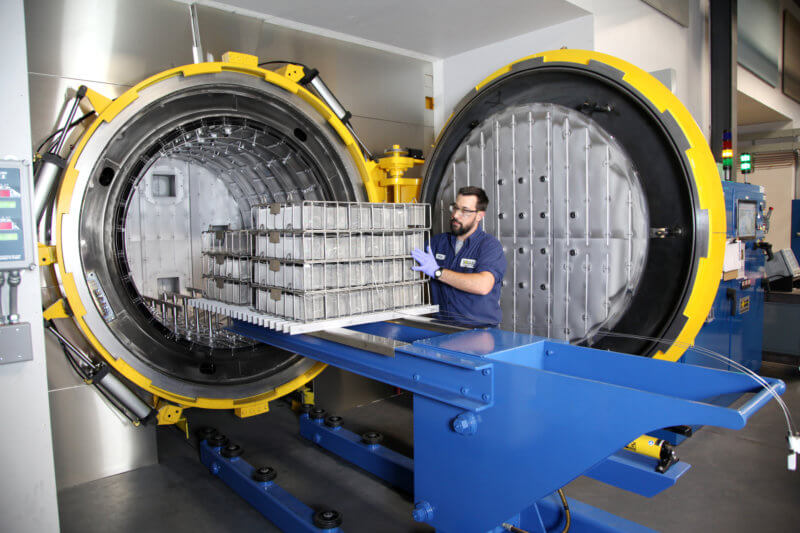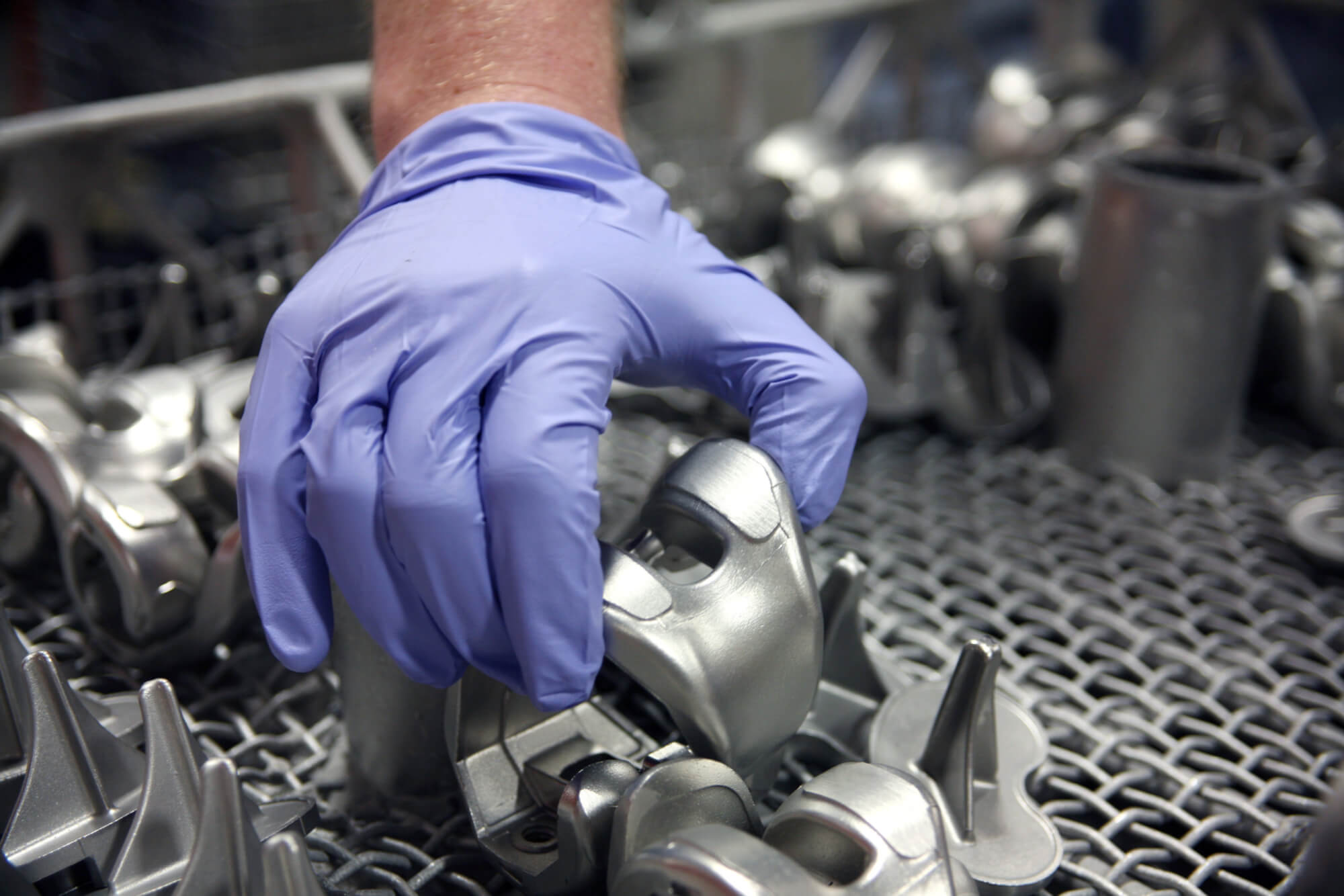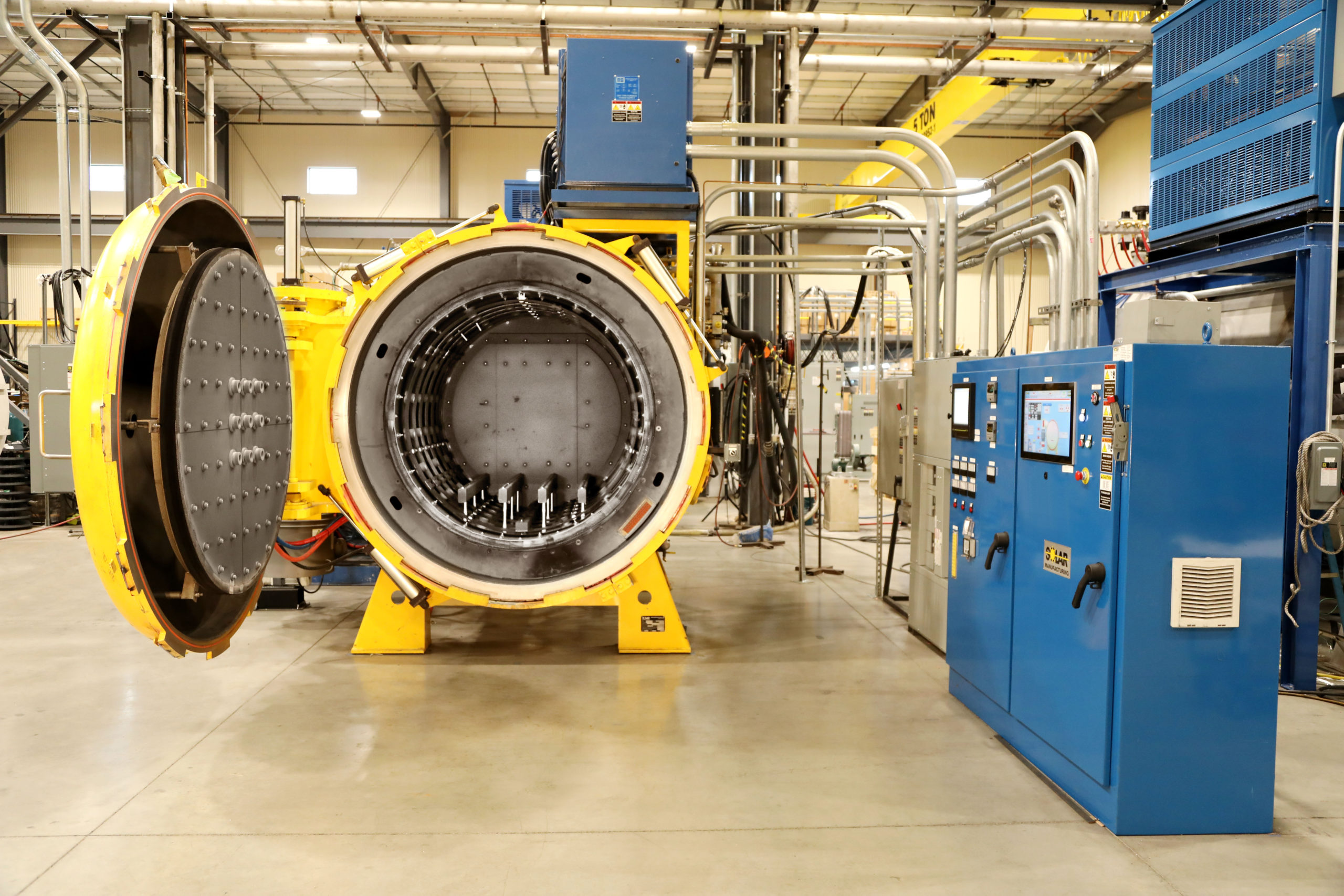CALL: 267-384-5040
Improving the Safety and Quality of Medical Devices Through Heat-Treating Process Accreditation

Technological change in many industries is often driven by advances in basic science, a move to digital transformation or simply the disruption of the status quo. In manufacturing, the focus on the ability to maintain a process with precision and repeatability based on supply-chain management is also crucial and has led to important advances in industries that make safety and quality imperative.
This process focus is nowhere more important than in the area of medical devices. The medical device industry produces many vital products, like joint implants, that must meet or exceed specifications for safety and quality. One of the ways many of these products are able to meet or exceed their specifications is through the application of sophisticated heat treating to induce microstructural changes that affect the materials and give them versatile and useful properties, like strength or durability.
Some of the medical products or components on which heat treating is used are:
- Hypodermic needles
- Stents
- Heart wires
- Titanium staples
- Metallic joint replacements
- Implantable battery cases
- Surgical hand and robotic surgical tools
- Dental burs
A Bit of History
Driven by the goals of patient safety along with clinical performance, medical device manufacturers have traditionally performed their process management and supply-chain oversight in-house. As Ed Englehard, vice president of corporate quality at Solar Atmospheres, explained, “Prior to 2010, many medical OEMs were vertically integrated with their manufacturing. Over the years as costs and administrative overhead grew, however, they found it more economical to farm some of these manufacturing processes out of their plants. For many of them, however, managing a wide-ranging and global supply chain was becoming a difficult task.”
Solar Atmospheres, founded in 1983, is a Souderton, Pa.-based commercial provider of vacuum heat-treating, brazing, carburizing and nitriding services. With operations in Pennsylvania, California and South Carolina, it serves the aerospace, medical device, defense and power generation industries.
The initial idea for the MedAccred program was explored in 2010 when a major medical device OEM was having issues with their heat-treated orthopedic products. They conducted a benchmarking study of their heat-treating suppliers and saw that their better-performing suppliers were accredited by Nadcap®. Nadcap is an industry-managed approach to conformity assessment for the aerospace industry that brings together technical experts from industry and government to establish requirements for accreditation, accredit suppliers and define operational program requirements.
What the benchmarking study found was a very distinct difference in quality performance between the Nadcap-accredited suppliers and those who were not accredited. This information pointed to the need for a better way to oversee critical process suppliers, like heat treaters and others, throughout the medical device supply chain.
The MedAccred program was initially developed to improve the quality of heat-treated products for the medical device industry. What began as a way to accredit heat-treating suppliers has today expanded into many other critical process areas to improve product quality and, more importantly, patient safety.
In 2012, a medical device industry roundtable was held in Chicago. Solar Atmospheres, having been a long-time accredited supplier in heat treating and nondestructive testing with the Nadcap accreditation program for aerospace, was involved in the roundtable talks. The discussion group included many of the major medical device manufacturers. The MedAccred program concept was created following this meeting.
“The more we dealt with our various medical device customers, most of which are some sort of manufacturer, the more we realized that there was no one who really understood heat treating and how critical it is to the success of a medical device,” Englehard said.
While sophistication and transparency were apparent with Solar Atmospheres’ aerospace clients, Englehard remarked that they did not see the same level with their medical accounts.
The MedAccred program was born out of a focused process of discovery and roundtable discussions and was modeled on the success of the Nadcap program. It was seen as a way for the medical device industry to get their arms around supply-chain management. In 2013, proof-of-concept audits based on the Nadcap program audit criteria were conducted. Briefings on the MedAccred concept were subsequently held with the FDA and included the importance of controlling the heat-treating process.
In 2014, the initial MedAccred technical task groups were created in various critical process areas, including heat treating; electronics – printed circuit board assemblies; electronics – cable and wire harnesses; sterilization; and welding.
The Souderton location of Solar Atmospheres received the first MedAccred accreditation globally in 2015 for heat treating. That year the FDA also subsequently recognized the aerospace heat-treating standard AMS2750, published by SAE International.
Heat-Treating Accreditation Today
 Both Nadcap and the MedAccred program are administered by the Performance Review Institute, a not-for-profit trade association started in 1990 to administer critical process accreditation programs in industries where safety and quality are shared goals.
Both Nadcap and the MedAccred program are administered by the Performance Review Institute, a not-for-profit trade association started in 1990 to administer critical process accreditation programs in industries where safety and quality are shared goals.
Like Nadcap in the aerospace sector, MedAccred also uses an industry-managed, rigorous technical audit approach to ensuring critical manufacturing process quality throughout the medical device supply chain. Technical experts from major medical device manufacturers work together to develop the audit criteria. MedAccred subscribing members include: Bausch Health, Baxter, Becton Dickinson, Boston Scientific, Edwards Lifesciences, Johnson & Johnson, Medtronic, Philips, Roche Diagnostics and Stryker.
“The MedAccred program gets right to the heart of what you say you are doing when you say you are a heat treater, or a welder or a printed circuit board manufacturer,” Englehard said. “We assume that the quality management system is there, but how you actually do the work in a technical manner is a different level of scrutiny than a quality management system. This seemed to be the area that was lacking in medical device supply-chain management up until MedAccred showed up.”
MedAccred uses SAE International standard AMS2750-Pyrometry as the cornerstone standard for heat-treating accreditation. This pyrometry standard included in the MedAccred audit is the first and only heat-treating standard granted complete recognition by the FDA. This standard covers pyrometric requirements for thermal-processing equipment used for heat treatment. The scope of the process and equipment audits include annealing, hardening and tempering, carburizing, nitriding, stress relieving, pyrometry, instrumentation and furnaces.
In addition to heat treating, MedAccred also accredits other medical device manufacturing processes, including:
- Cable and wire harness assembly
- Plastics extrusion
- Plastics injection molding
- Plastics mechanical assembly
- Printed circuit boards (bare boards)
- Printed board assembly
- Sterile device packaging
- Sterilization
- Welding
The Importance of “Flow Down”
After seven years of experience with the MedAccred process, Solar Atmospheres is seeing progress with medical device OEMs in the area of supply-chain oversight to improve process quality. This progress is evident in the application of the concept of “flow down,” a contract provision where a prime contractor legally binds a subcontractor to the terms and conditions of the prime contract so that every supplier in the supply chain is accountable to the original contract standards.
“Medical customers are starting to enforce flow down so that the OEM designer’s original intent reaches down to the bottom of the supply chain in a level of technical sophistication and transparency that many of our direct customers were not accustomed to doing,” Englehard said. “In supply-chain management, contract flow down is hugely important, and it is an area that was weak in aerospace prior to Nadcap and definitely a weak area in medical supply-chain management prior to MedAccred.”
Solar Atmospheres saw the development of the MedAccred process as a way to ensure that a medical device was going to be properly manufactured and, in this case, properly heat treated.
“At the end of the day, we all share exactly the same concern,” Englehard said. “This concern is that the place where a patient, a doctor and a medical device all come together should never be compromised by some form of manufacturing defect, and among those potential defects are those that might arise from critical suppliers like heat treaters. We felt that MedAccred was going to be a way to separate out those suppliers who were interested in patient safety from those who, frankly, were not.”
Solar Atmospheres’ experience with the MedAccred process has yielded positive outcomes. According to Justin Hoffman, quality manager at Solar Atmospheres’ western Pennsylvania location, the MedAccred program has contributed to a reduction in the company’s in-house defect rate by 15-25% and also contributed to a reduction in defective product escaping to their customers.
Conclusion
According to Fortune Business Insights¹, the global medical device market was valued at almost $489 billion in 2021, with growth of 5.5% expected annually through 2029. This growth is being fueled by an increasing number of patients undergoing diagnostic and medical procedures that emphasize early diagnosis and treatment. It is also being driven by medical industry investments in new technology and an increase in breakthrough device designations from the FDA.
Heat treatment as a critical process is a significant component in the manufacture of many medical devices, and its importance will grow as the market increases. Supplier accreditation in the heat-treating field, as in other areas covered by the MedAccred technical audit process, can support accountability up and down the medical device supply chain, providing a measure of added safety and security to patients worldwide.
For more information: Since being established as a not-for-profit trade association in 1990, PRI has become the global authority in facilitating industry-managed programs and administering critical process accreditation programs as well as developing web-based audit management software. Visit https://www.p-r-i.org/medaccred or call 724-772-1616.
References
Fortune Business Insights: “Medical Devices Market,” accessed at: www.fortunebusinessinsights.com/industry-reports/medical-devices-market-100085. 6/22/2022

